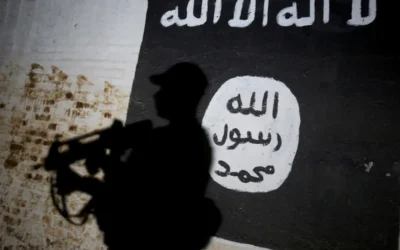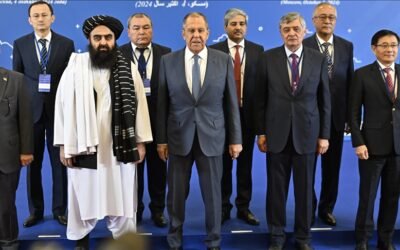Prime Minister Shehbaz Sharif has arrived in Doha, Qatar, to participate in the Emergency Arab-Islamic Summit. The high-level meeting, co-sponsored by Pakistan, was convened in response to Israel’s recent airstrike on the Qatari capital, an event that has drawn widespread international condemnation. The Prime Minister’s delegation includes Defence Minister Khawaja Asif, Information Minister Attaullah Tarar, and Special Assistant to the PM Tariq Fatemi, underscoring Pakistan’s firm commitment to the cause.
The summit’s agenda focuses on developing a unified and robust response to escalating regional tensions and the ongoing situation in Palestine. This includes a draft resolution seen by Reuters that condemns what it calls Israel’s “hostile acts including genocide, ethnic cleansing, and starvation.” The attack in Doha, which killed five Hamas members and a Qatari security officer, occurred amidst ongoing ceasefire negotiations in which Qatar plays an instrumental role.
Pakistan’s Leadership, and Diplomatic Efforts
Pakistan has taken a central role in mobilizing a coordinated response to the crisis. Deputy Prime Minister and Foreign Minister Ishaq Dar, who was already in Doha, actively participated in the preparatory ministerial meetings, where he delivered a powerful address.
In a summary of his key statements, Minister Dar called for urgent and decisive steps to “safeguard the global order” and ensure Israel is held accountable for its actions. He proposed the creation of an Arab-Islamic task force to monitor Israeli designs and adopt effective deterrent measures. Furthermore, he urged member states to consider punitive actions against Israel, including the potential suspension of its UN membership. Dar’s statements underscored the need for an immediate, unconditional, and permanent ceasefire, the protection of humanitarian aid workers, and the revival of a genuine political process to achieve a lasting two-state solution.
International Reactions, and Bilateral Engagements
Leaders and officials from various nations at the summit expressed strong condemnation of Israel’s actions. Qatari Prime Minister Mohammed bin Abdulrahman bin Jassim al-Thani urged the international community to stop applying “double standards” and to punish Israel. Iranian President Masoud Pezeshkian called on Muslim countries to sever ties with Israel and maintain unity. Palestinian President Mahmud Abbas, along with leaders from Turkey and Iraq, are also in attendance.
The Israeli strike on Qatar has prompted a reevaluation of regional alliances, with US-allied Gulf Arab states closing ranks. The UN Security Council has also unanimously condemned the strike, a move that signals a rare moment of international consensus. In Washington, US President Donald Trump commented on the situation, stating that “Qatar has been a very great ally” and that “when we attack people we have to be careful.” US Secretary of State Marco Rubio, however, clarified that the incident would not “change the nature of our relationship with the Israelis.”
On the sidelines of the meeting, Deputy Prime Minister Dar engaged in extensive diplomatic pull-aside meetings with his counterparts from Turkey, Egypt, Iran, Malaysia, Uzbekistan, and Bangladesh. In each meeting, he strongly condemned the Israeli strikes, terming them blatant violations of sovereignty and international law. The consistent message from these engagements was a shared resolve to use the summit as a platform for collective action and a reaffirmation of unwavering support for the Palestinian cause.

The Path Forward
With PM Shehbaz Sharif now in Doha, Pakistan continues to demonstrate its unwavering commitment to its Muslim partners and to the principles of justice and peace. The summit is expected to send a clear and unified signal, not only to Israel but to the wider international community. The discussions are set to lay the groundwork for a coordinated response to the ongoing crisis, building on the consensus that a new and determined approach is needed to counter aggression and ensure the safety and dignity of the people of Palestine.
You May Like To Read: Iraqi Air Force Commander Visits Pakistan, Meets Chief of Air Staff




























